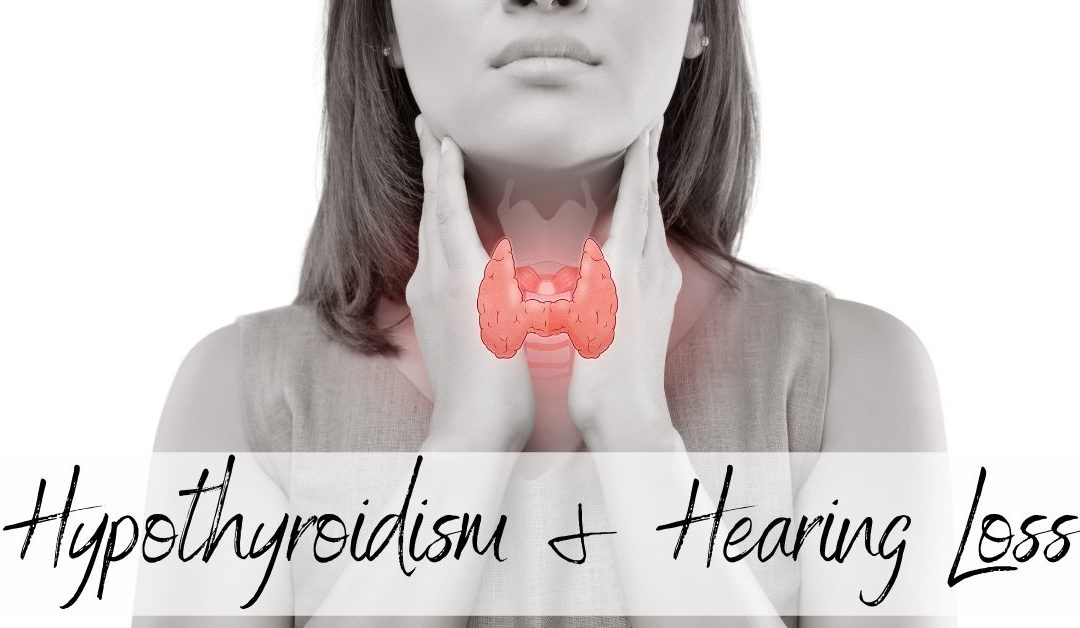Many physical conditions affect not only your overall well being, but will also affect your hearing. For example, diabetes and heart disease can both lead to hearing loss. Did you know that hypothyroidism and other thyroid diseases are also linked to hearing loss? Here’s an overview of hypothyroidism, and how it’s connected to your ears.
What is Thyroid Disease?
Thyroid disease is quite common, and millions of Americans have some problems with their thyroid glands. Often the symptoms are mild, and people aren’t aware that they have a thyroid disease. However, thyroid disease can affect your entire body.
The thyroid gland is in your neck, right below your Adam’s apple at the front of your throat. This gland is shaped a bit like a butterfly, extending along both sides of your neck. Normally you can’t feel your thyroid, but if it gets swollen you can feel the swelling in your neck.
The thyroid is responsible for producing the hormone thyroxine that helps regulate your body’s metabolism. Your metabolism is responsible for how your body uses energy. It also helps regulate your breathing, heart rate, weight, and more. When the thyroid isn’t functioning properly, there may be too much or too little thyroxine available. This can affect every other system in your body.
Types of Thyroid Disease
There are two main types of thyroid disease: hyperthyroidism and hypothyroidism.
- Hyperthyroidism is caused by an overly active thyroid. The thyroid will produce too much of the thyroxine hormone. A main symptom of hyperthyroidism is weight loss, along with nervousness and anxiety.
- Hypothyroidism is caused by an under-active thyroid. The thyroid gland doesn’t produce enough thyroxine. Common symptoms of hypothyroidism include weight gain, depression, and fatigue.
Other Kinds of Thyroid Disease
Along with hyperthyroidism and hypothyroidism there are other conditions that affect the thyroid.
- Goiter: If you experience a swelling of the thyroid, doctors use the term goiter. This swelling can be harmless, and the swelling can disappear in a few days. It can also be a sign of a more serious problem. The swelling can even affect your breathing and swallowing.
- Thyroid cancer: The thyroid can also be affected by cancer. While this form of cancer isn’t very common, some people will have cancer of the thyroid. This cancer is usually curable.
Recognizing the Symptoms of Thyroid Disease
Thyroid disease is linked to a number of different health concerns, so it can be hard to recognize the symptoms of thyroid disease. Some of the symptoms of thyroid disease can include:
- Changes in weight
- Headaches
- General fatigue
- Depression
- Low energy levels
- Forgetfulness
- Heart palpitations
- Irritability
- Anxiety or nervousness
- Vision problems
Since thyroid disease has so many symptoms, people often attribute their symptoms to other health problems. If you’ve noticed any ongoing, but seemingly random health problems, ask your doctor to check your thyroid function. Having the right amount of thyroxine in your body is important for your overall health and wellbeing as well as your hearing.
Hypothyroidism and Hearing Loss
Hypothyroidism, or having an under-active thyroid, has been linked to hearing loss. This disease can lead to changes in your hearing health, and some treatments for thyroid disease can affect your hearing. When your thyroid is not producing enough thyroxine, your metabolism slows. Many of your bodily systems slow down, and that’s why you often feel low energy and fatigue. This affects your heart, your brain, and even your ears.
Hypothyroidism makes it hard for your body to have enough energy, and more blood flow is directed to vital organs and muscles. This means that your ears may suffer, and some of the cells in your ear may be damaged or even die. People with hypothyroidism often complain about difficulty hearing. They may also experience tinnitus, or a ringing or buzzing sound in their ears. Finally, people with hypothyroidism are also more likely to experience vertigo.
Treating Hearing Loss
Have you noticed any changes to your hearing because of a thyroid disease? After speaking to your doctor and finding the right treatment option, visit us. We’ll test your hearing and find out what sounds you’re missing. A quality pair of hearing aids is a great solution to your hearing needs! Find the right hearing devices to get back hearing clearly.


